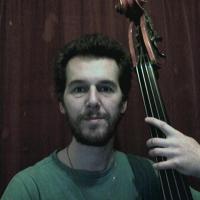Messages: 14
Language: English
erinja (User's profile) October 24, 2007, 1:04:18 AM
There is a contact form at http://www.esperanto-montreal.org/en/kontakto
billpatt1942 (User's profile) November 6, 2007, 9:49:56 PM
BasCostBudde (User's profile) November 10, 2007, 9:33:49 PM
Well, if you don't happen to have cut off the root incorrectly to begin with

erinja (User's profile) November 11, 2007, 2:57:57 PM
Learning where to draw the lines between root word, prefixes, and suffixes is a skill that comes with time. It seems difficult as a beginner, but once you have a deep enough familiarity with the prefixes and suffixes, they pop out at you when you look at a new word, even if you don't recognize the root, and it really becomes no problem at all. Of course a root may have "il" or whatever at the end, so even an experienced speaker may be confused for a moment, but in general it is a rare and minor problem.



